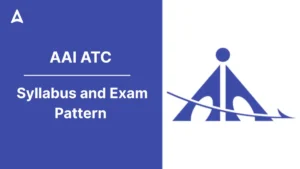Dear Readers,
The reasoning is a game of wits and presence of mind! Yes, it is true and it might seem as the greatest of the challenge after English Section’s surprises but yet this one can easily be dealt with. You just need correct practice and hardwire your brain to quickly make decisions about what to attempt and what to leave. And for same we are providing you questions of Reasoning Question and Answers. Solve these to Practice latest pattern reasoning question for bank exams.
Directions(1–4) : Study the following arrangement carefully and answer the questions given below—
1.How many such prime numbers are there in the given arrangement each of which is immediately followed by a symbol and preceded by a consonant?
(a)None
(b) One
(c) Two
(d)Three
(e)More than three
2.Which of the following is the seventh element to the left of ©?
(a)U
(b) Z
(c)R
(d)X
(e) None of these
3.What should come in place of the question mark (?) in the following series based on the above arrangement?
1 6 X , 3 5 9, R 4 Z, ?
(a)@ T A
(b) 4 A G
(c) G E #
(d) G # T
(e) None of these
4.If the symbols and numbers are dropped from the given arrangement and then the letters are rearranged in alphabetical order which of the following will be the sixth from the left end ?
(a)C
(b)S
(c) Z
(d) A
(e) None of these
Directions (5-8): Symbol @, ©, #, $ and % are used with following meaning
‘P©Q means ‘P is greater than or equal to Q’
‘P%Q’ means ‘P is either smaller than or equal to Q’
‘P@Q’ means ‘P is neither greater than nor smaller than Q’
‘P#Q’ means ‘P is smaller than Q’
‘P$Q’ means ‘P is greater than Q’
Now in each of the following questions assuming the given statements to be true, find which of the two conclusions I and II given below them is/are definitely true and given your answer accordingly give answer-
(a) If only conclusion I is true
(b) If only conclusion II is true
(c)If either conclusion I or II is true
(d) If neither conclusion I nor conclusion II is true
(e) If both conclusion I and II are true
5.Statements: S$Q, R%P, P#S
Conclusions: I. P#Q II. P©Q
6.Statements: C@D, D#E, E%F
Conclusions: I. C%D II. C$E
7.Statements: I©M, M#P, R$P
Conclusions: I. R©M II. R$M
8.Statements: L#N, P%L, N$K
Conclusions: I. L$K II. N%P
9.How many such pairs of letters are there in the word BANGLADESH, each of which has many letters between its two letters as there are between them in English alphabet?
(a) None
(b) One
(c) Two
(d) Three
(e) None of these
10.Introducing a woman, Mohan said, ”She is the mother of the only daughter of my son.” How that woman is related to Mohan?
(a) Daughter
(b) Daughter-in-law
(c) Sister-in-law
(d) Wife
(e) None of these
Directions (11-15): Read the following information and answer the questions given below.
(i) A, B, C, D, E, F and G are seven members standing in a row (not necessarily in the same order) facing north.
(ii) C and B have as many members between them as G and C have between them.
(iii) D, who is 3rd from the extreme left, is 3rd to the left of E.
(iv) A and D are neighbors and F and C are neighbors.
(v) G is at extreme left end.
11.Which of the following statement is false?
(a) A is the 3rd to the left of F
(b) D is 3rd to the left of E
(c) F is 3rd the right of A
(d) B is 3rd to the left of C
(e) None of these
12.Which of the following statements is true?
(a) C and E are neighbors
(b) E is to the immediate left of F
(c) C is to the immediate left of D
(d) A is to the immediate left of D
(e) None of these
13. Who is at the extreme right?
(a) Data inadequate
(b) G
(c) B
(d) E
(e) None of these
14.Which of the following gives two pairs of neighbors?
(a) A, C and D, C
(b) A, B and E, G
(c) D, C and E, F
(d) C, F and C, E
(e) None of these
15.What is the position of F?
(a) Immediate right of E.
(b) Third to the left of G
(c) Immediate left of C
(d) 5th to the right of B
(e) None of these
You May also like to Read:





 GA Capsule for SBI Clerk Mains 2025, Dow...
GA Capsule for SBI Clerk Mains 2025, Dow...
 The Hindu Review October 2022: Download ...
The Hindu Review October 2022: Download ...
 AAI ATC Syllabus 2025 and Exam Pattern
AAI ATC Syllabus 2025 and Exam Pattern





